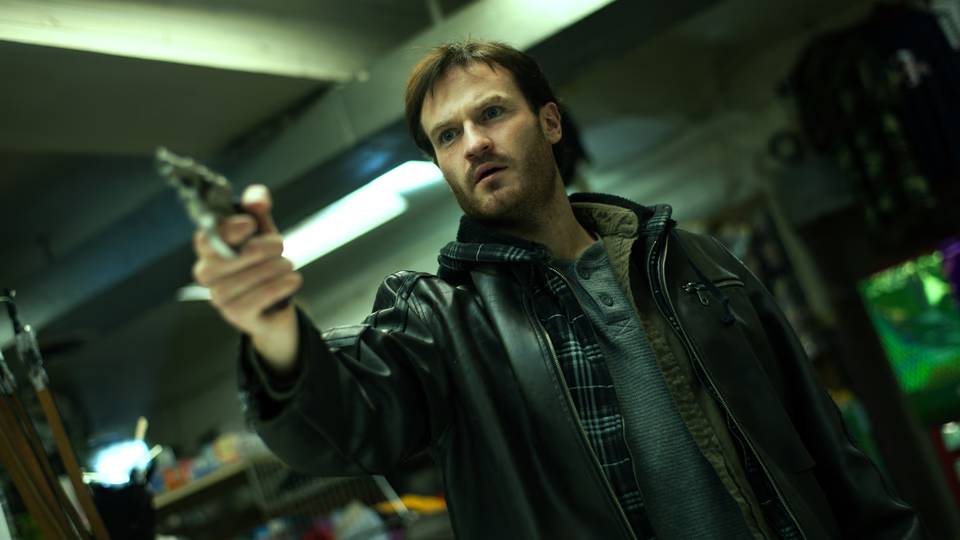Crave

Crave tells the story of Aiden. Aiden earns his living photographing Detroit’s grisly crime scenes. The violence and decay he’s exposed to on a daily basis begin to take their toll.
On the train home, he sees two young men harassing an attractive woman. He fantasizes about shooting the men in the kneecaps. In his daydream, the crowd hails him as a hero and the attractive woman offers herself as reward. When he does nothing, he berates himself for being a coward. Soon, he begins having trouble accepting his fantasies as illusion. He talks of feeling “divergent” from reality. He acquires a gun.
Aiden has also been fantasizing about his young neighbor, Virginia. She’s got an unkempt boyfriend named Ravi who doesn’t seem to treat her well. In an improbable (but charming) sequence, Aiden becomes his fantasy self and takes Virginia to bed. Flush with confidence, Aiden attempts to stop a pimp from beating a girl in the street. He is ineffectual almost to the point of comedy and nearly killed. Aiden sees more of Virginia. He falls hard. But Virginia soon senses Aiden’s unstable nature and returns to Ravi. This leads to the inevitable meeting of Aiden, Ravi, and Aiden’s gun.
If you’ve seen Taxi Driver much of this film will feel familiar. If you haven’t seen Taxi Driver… well, you might have a higher opinion of Crave. The problem here is that the film tries to be a creditable indictment of urban indeifference. But by reducing Aiden’s psychosis to a series of over-the-top fantasies, Crave gives up any sense of conviction. Travis Bickle’s legendary “Are you talking to me?” monologue was terrifying because of its raw, earnest nature. Aiden’s pulping of a loudmouth’s skull during an AA meeting to cheers and confetti from the rest of the group plays like comedy. Having a character say that Aiden’s “angry white man routine” is “very 1992” doesn’t let you off the hook.
Crave could have saved itself by committing to the black comedy. There are some good moments. Aiden bumbles through the world’s most awkward blackmail attempt. He jokes to Virginia that he’s old enough to be her father in relation to their 13-year age gap. These and other bits are funny, but they don’t gel with film’s darker, noir-ish sequences.
Like Aiden, Crave can’t commit to course of action. It falls back to awkward humor when things get too serious. Like Virginia, we’re intrigued at first. Seduced by the slick cinematography, and confident performances. Then we sense where the script is going and want to see other films.